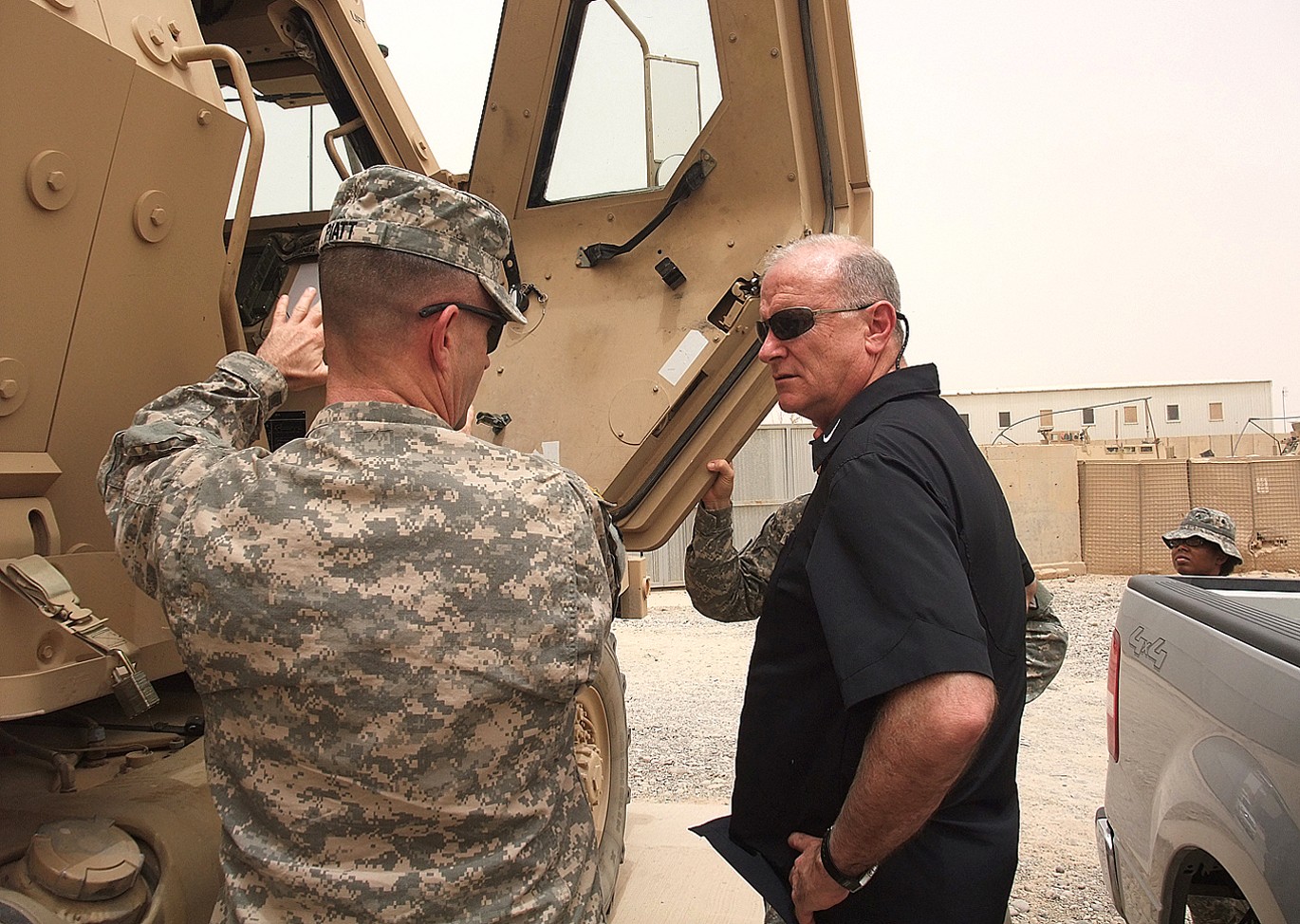
Superintendent Lt. Gen. Buster Hagenbeck traveled in the Central Command area of operations in Iraq June 3-7, and met with combat leaders to learn about the challenges they face and what they want from West Point graduates.
"The face of warfare is constantly evolving ... the academy has to have the latest information to confirm we are on the right trajectory," Hagenbeck said.
He met with many commanders and a number of West Point graduates to get their input about what West Point is doing right and wrong and how recent graduates are doing.
"The lieutenants I am getting out of West Point are tactically sound and are constantly thinking. I like what West Point is producing," said Col. Walter Piatt, commander of 3rd Brigade Combat Team, 25th Infantry Division.
At each location, Hagenbeck and his accompanying staff were surrounded by recent graduates with questions about changes at the academy.
"The new MX400 course and the new Cadet Leader Development Training generated some of the most intense questions," Maj. Mike Sapp, assistant operations officer, said.
MX400 is a new course that every cadet takes the semester before graduation. The course covers officership topics with a focus on battlefield decision-making. CLDT is a new part of the last cadet summer at West Point that covers basic platoon leading skills.
"I like these changes to the academy. It sounds like West Point is reacting to what we are learning in the field," a new lieutenant at Forward Operating Base Speicher said.
The USMA team learned that many graduates do not know about the changes or even about the support and products that cadets have contributed to the forward deployed leaders.
"Once deployed, the leaders get most of their information from the SiPRnet," Hagenbeck said.
The SiPRnet is a separate Internet just for classified communications. Because it is difficult to have both a regular Internet and SiPRnet in the same location, many officers spend less than two hours per week on the regular Internet, where much of West Point has Web sites and other information.
"We have to find a way to have a persistent presence on the SiPRNet. Our cadets, faculty and staff do too much important work that is not readily accessible to these junior leaders," he said.
Army Head Football Coach Rich Ellerson accompanied the superintendent on the visit.
"The excellence, resourcefulness, professionalism and generosity of the officers I was privileged to meet is an inspiration I will be sharing with my coaches, players and recruits. I was struck by the complexity of the diverse battlefield these combat leaders face," Ellerson said.
Many officers also had questions about the complexities of Ellerson's new offense.
Graduates also had insights about what they would like to see coming out of West Point in the future. Topics revolved around issues the recent graduates were experiencing in their units.
Most mentioned were cadet-noncommissioned officer interaction, physical fitness and sports, education for the battlefield and cultural immersion experiences.
"I spend 80 percent of my days working with my noncommissioned officers," one platoon leader at Camp Victory said. "However, at West Point, I probably had 40 hours of total interaction with NCOs."
Physical training is key for all officers, something mentioned by many.
"I cannot stress enough how important physical training is to developing a cohesive combat team," 1st Lt. Samuel Ketcham, USMA class of 2007, said. "I recommend West Point continue to push the intramural, club and corps squad activities as a leadership development activity."
Teaching cadets why things are being taught, not just learning by rote, and how to plan for things is key.
"My best officers know how to think, not just what to think," a major in the 25th Inf. Div. at FOB Speicher said."The education process has to produce thinking leaders not just rote memorization."
Hagenbeck was expressive about the visit.
"I have to admit that it was a great time interacting with these young combat leaders and listening to their stories," he said. "However, they also presented some challenges that I, as the superintendent, will be addressing in the upcoming year. We owe it to our graduates and the Army."

Social Sharing